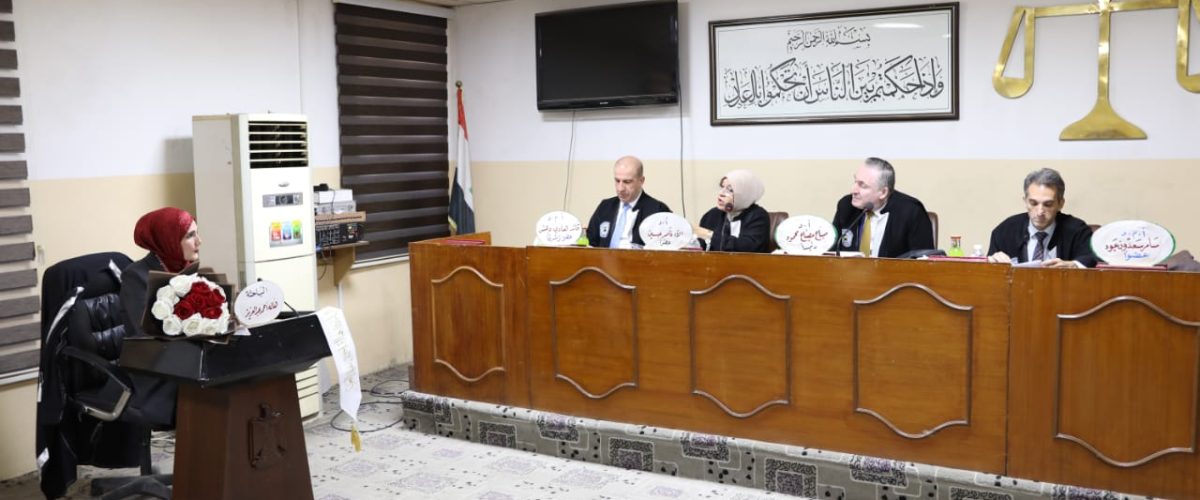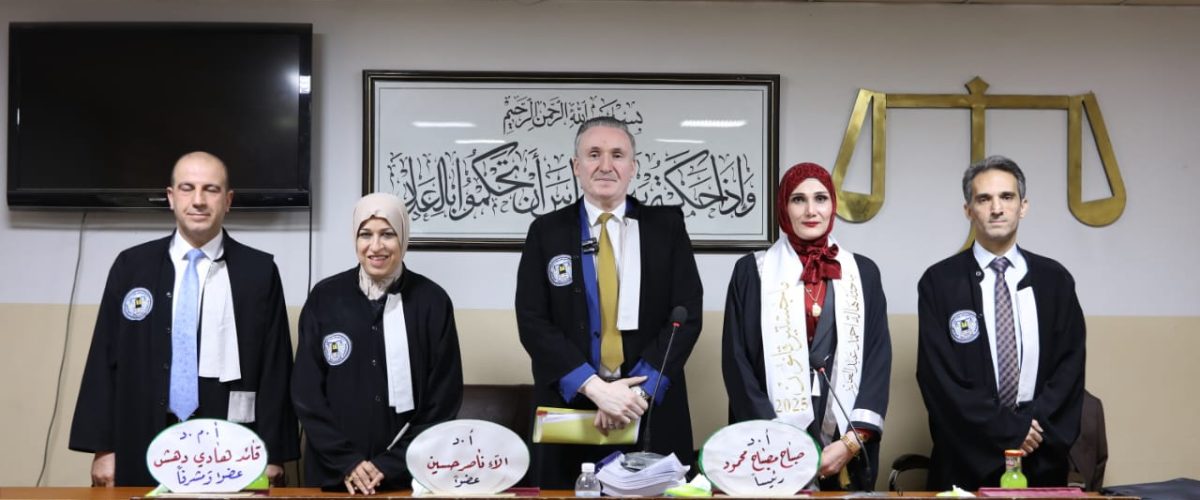The College of Law at the University of Baghdad discussed a master’s thesis entitled “The Criminal Protection of the Air Environment—A Comparative Study” by the student Hala Ahmed Abdulaziz, in the Criminal Law Department, on Tuesday, July 1, 2025, in the Virtual Courtroom Hall at the college.
The discussion committee consisted of
1. Prof. Dr. Sabah Musbah Mahmoud (Chairman)
2. Prof. Dr. Alaa Nasser Hussein (Member)
3. Asst. Prof. Dr. Samer Saadoun Abboud (Member)
4. Asst. Prof. Dr. Qaed Hadi Dahash (Member and Supervisor)
The thesis aimed to achieve the highest possible level of protection for the air environment by activating the role of criminal law alongside civil and administrative law in order to provide the maximum degree of protection for the element of air—that is, criminal protection.
The thesis was divided into three chapters: the first chapter addressed the conceptual framework of the air environment, the second chapter dealt with the legal framework for criminal protection against air pollution, and the third chapter examined the forms of criminal protection for the air environment.
The thesis reached several recommendations, the most notable of which are:
1. Establishing specialized courts and appointing specialized judges to handle environmental cases, ensuring the swift and effective application of environmental laws.
2 . Including in the Iraqi Environmental Protection and Improvement Law No. (27) of 2009 a provision for a proportional fine, to be determined based on the degree of risk and damage caused to the air environment and the financial gain obtained by the offender from violating the provisions of the environmental law.
3. Amending the criminal penalties stipulated in the Environmental Protection and Improvement Law No. (27) of 2009 to match the severity and seriousness of the crime. This includes raising the fine to no less than 25,000,000 IQD (twenty-five million Iraqi dinars) and no more than 50,000,000 IQD (fifty million Iraqi dinars), and imposing custodial penalties (imprisonment) for a period of not less than five years in cases constituting serious violations of the air environment.



